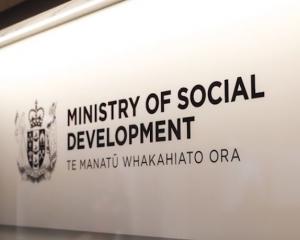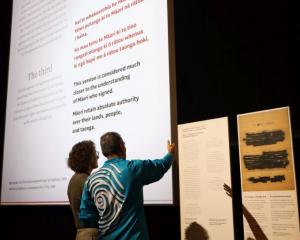More than 30,000 respite care workers are keenly awaiting a ruling from one of New Zealand's highest courts to decide if they are worth more than $3 an hour.
Jan Lowe, from Paraparaumu, north of Wellington, was paid a "subsidy" of $75 for 24-hour shifts as an in-home care relief worker for seriously ill or disabled clients, work she began in the 1990s.
If she worked 12 hours she got $37.50 - about $3 an hour.
But in a landmark ruling, the Employment Court ruled the Ministry of Health and Capital & Coast District Health Board had to pay her the minimum wage - now $15.25 an hour - and holiday pay.
The ministry and DHB appealed the decision and the matter was heard in the Court of Appeal at Wellington today, where they argued Ms Lowe was not an employee of theirs.
Outside court, Ms Lowe said she wasn't sure how Government bodies could "get away with" paying her $3 an hour.
"There's something not right. For me [the appeal] is about fairness."
She was unsure how the hearing went but thought the ministry and DHB's arguments amounted to "semantics". Her action wasn't just about her, but also the other 35,000 home care relief workers set to receive up to six years' back pay if the Employment Court decision is upheld.
Ministry and DHB lawyer Joanna Holden said such relief work was almost comparable to volunteering, rather than a formal contractor arrangement.
It was often undertaken by family or friends of those needing intensive care and they would fund the relief respite worker from a "subsidy" paid by the ministry or DHB.
"The fundamental ingredients of an employment relationship cannot exist in a situation like this," Ms Holden said.
"Neither the DHB nor the ministry had any input into or knowledge of the relationship at the time it was entered into".
Ms Lowe's lawyer Peter Cranney said New Zealand had a "massive problem" with low wages and cases like this were "beginning to focus some light on the issue".
He rejected suggestions the ministry and the DHB were at arm's length from relief care workers, saying the needs of patients were assessed by their assessment committee.
"It's Crown money fro a service provided by the Crown to a patient. It's a service that's part of the health service among all the other bits and pieces a client or patient gets."
One of the judges, Justice Wild, wondered why Ms Lowe would undertake such work when she could choose to seek more formal employment.
Mr Cranney did not accept that and said there were thousands of New Zealanders at the bottom of the labour market to consider.
The Court of Appeal reserved its decision.
In a statement, E tu union assistant national secretary John Ryall said respite careers did an important job supporting some of the most vulnerable New Zealanders and deserved the minimum wage.











